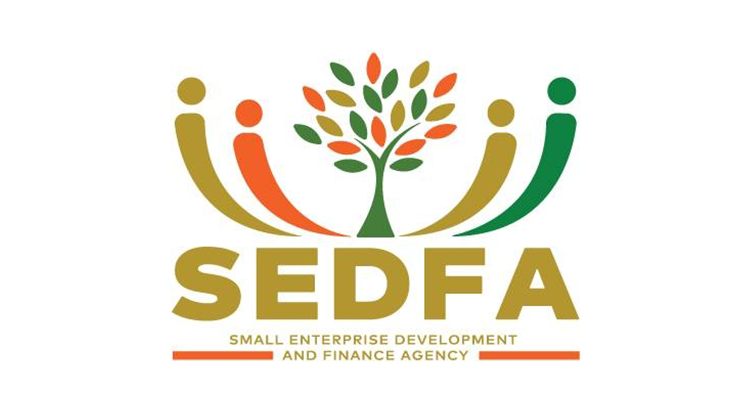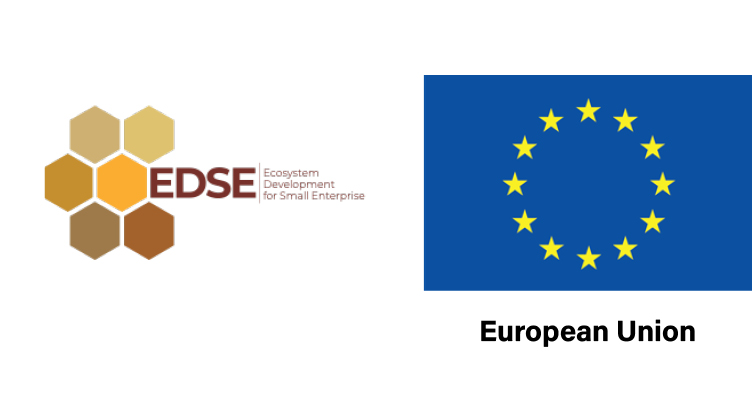
10 January 2019 - I am delighted to be afforded this important opportunity to share my thoughts on the role of small businesses and how the department’s programmes can advance the growth and sustainability of small businesses. At the outset, let me state that the vision of the Department of Small Business Development and its agencies is to create a vibrant culture of entrepreneurship and enterprise growth, where small businesses and co-operatives act as drivers of job creation and inclusive economic growth. The establishment of the Ministry of Small Business Development in 2014 marked a turning point in the history of SMMEs and Cooperatives development in South Africa, demonstrating government’s commitment to place SMMEs and Cooperatives at the centre of economic growth and job creation. However, the reality is that we operate in a challenging economic environment.
The financial 2017/18 has been without a doubt very challenging to the country. Our economy faced serious economic challenges with slow growth and rising unemployment. The recent Statistics SA Quarterly Labour Force Survey (QLFS), indicate that unemployment rate has increased from 21,5% to almost 28,0% in the 3rd Quarter 2018. As if this is not enough, those living in extreme poverty below R441 (35 USD) increased from 11 million in 2011 to 13,8 million in 2015. The department and its agencies are determined to reverse these challenges. Our collective mandate is to ensure the radical transformation of our economy through the promotion and development of sustainable and competitive entrepreneurs, small businesses and co-operatives that contribute to job creation and economic growth. Radical economic transformation is a social and economic imperative.
The triple challenges of unemployment, poverty and inequality bear a disproportionately black and rural face. While national unemployment is at 26.7%, a breakdown of the 2017 figures by US agency Quartz (2018) shows that for Black South Africans it is at a staggering 31.4%. Inequality is stark as, according to figures from Oxfam (2018:11), the top 10% in South Africa shares 50% of all income while the bottom 50% shares 12%. Blacks are predominantly in this bottom 50%. To crown it all, figures from StatsSA tell us that nearly half of the population is considered chronically poor as people living in poverty (less than R1000 per person per month) increased to 30,4 million in 2015.The establishment of our department was largely informed by the fragmented nature and misalignment of support to the SMMEs and Cooperatives sector, economic transformation, lack of specialized and focused support with limited resources, the high failure rate of SMMEs and Cooperatives, and poor sector performance relative to peers in other developing countries.
In 2015/16, the DSBD and its agencies undertook a programmes review exercise, aimed at reviewing the migrated functions and identifying opportunities for enhanced integration, efficiencies and economies of scale in the operations of the Portfolio. Let me indicate that the department, Small Enterprise Development Agency (SEDA) and the Small Enterprise Finance Agency (SEFA) have embarked on a process towards the development of an overarching and integrated Strategic Framework for the Portfolio. The basis of the Small Business Development Portfolio Architecture (SBD portfolio architecture) is the National Development Plan, which expects that 90% of jobs would have to be created by small and expanding firms by 2030.In pursuit of the objective of the NDP, the National Portfolio programme architecture was formulated along the lines of a coherent integrated support services that includes financial and non-financial support services. This might imply a rationalisation and integration of Sefa and Seda’s access points at local level. These will be good access points for entrepreneurs and would be entrepreneurs at a local level.
The objective of the support architecture is to create awareness on the importance of entrepreneurship, to increase the enterprise start-up rate in the economy, support existing start-ups to reduce enterprise failure rate and increase the overall competiveness of small enterprises in the economy. This structure is based on the understanding of social partnerships with the private sector. Red Tape Reduction aims to reduce the bureaucratic and regulatory conditions that impede SMME development across all spheres of government. The target is to have rolled out the Red Tape Reduction programme across all the municipalities by the end of 2019.The Craft CSP programme pursues various interventions aimed at supporting the productivity, competitiveness, growth and development of the crafts sector in South Africa. Core activities include; research on trends, production levels & challenges faced by crafters; creating market access through trade shows and improving the productivity of crafters. The ESD Fund was conceived to approach private sector partners and advocate for SMME inclusion through the ESD component of the B-BBEE codes.
The programme is reliant on private ESD support which has not been forthcoming. The Fund was transferred to Sefa for further development and implementation. Micro-franchising works with successful SMMEs or co-operatives that have successful track records and an ability to be streamlined and replicated, to build brands that can be franchised in townships and rural areas. Co-location Programmes give communities, small enterprises and co-operatives a single access point to information and support services.
The government of South Africa has realised the importance of the informal economy which happens to be prevalent in the townships and rural areas. As a result Cabinet approved the National Informal Business Upliftment Strategy (NIBUS) in 2014. NIBUS has two incentives to support its strategy, the Shared Economic Infrastructure Facility (SEIF) and the Informal and Micro Enterprise Development Programme (IMEDP). SEIF works with local authorities to provide co-working space for small businesses, while IMEDP supports individual enterprises to improve their working conditions. BBSDP is a cost-sharing grant offered to black-owned small enterprises to assist them in improving their competitiveness and sustainability, through the provision of machinery, tools, equipment and business development services. The SEDP programme provides support to enterprises owned and managed by women, youth and/or people with disabilities in order to increase their capacity to access economic opportunities. CIS is an incentive that aims to improve the viability and competitiveness of cooperative enterprises by lowering the cost of doing business.
The Cooperative Development Support Programme aims to establish the entities prescribed by the Cooperatives Amendment Act; the CDA, the Tribunal, the Academy and the Advisory Council. The programme assists secondary marketing cooperatives to provide specialised managerial services such as quality control, logistical services, bulk-buying, marketing and other value-added services to primary cooperatives. Through an incubator model, the programme provides cooperatives and now SMMEs with technical and business management skills and market linkages over a 3-year incubation period. We are determined to support township and rural businesses with a series of targeted support interventions aimed at addressing the legacy of spatial exclusion faced by these businesses.
The Supplier Development Programme entails negotiating with the private sector to provide supplier development opportunities to cooperatives and now also to SMMEs. Similarly, Market Access Support is a programme, initially only focussed on cooperatives, that engages with private sector partners to create market access opportunities for small enterprises. This programme will be restructured so that it can integrate the work done in the Strategic Partnerships and Market Access Unit. The SEDA incubation programme provides comprehensive support to small business owners and aspiring entrepreneurs through a nationwide network of incubators. The programme has an annual budget of R130m. Incubator focus is on supporting SMMEs to improve their survival rate and contribution to the national economy by transferring basic business skills. Technology transfer is an incentive programme by SEDA for entrepreneurs who need to invest in technology or process in order to scale their business. SMMEs can access grant support of up to R600k with an owner contribution portion. The programme had an annual budget of R15m, but needs to be recapitalised as it is over-prescribed.
The core objective is to enhance the competitiveness of small enterprises by funding efficiency, output or effectiveness improvements. Employment scenarios outlined in the NDP suggest that most new jobs are likely to be sourced in domestic-orientated businesses, the services sector and in growing small-and medium-sized firms. For this to become a reality, it requires a radical policy shift that recognises the urgent need to invest in small and medium businesses because they are key drivers of economic growth and job creation. We are working towards a national strategy or framework to address negative impact of red tape on small businesses and cooperatives. We are keenly aware that the field of red tape reduction and the interventions that have been designed to address it suffer from a lack of coherence and co-ordinated focus. We are in the process of developing a National Red Tape Reduction Strategy, which will provide clarity on the logic, model and theory of change that underlie various red tape interventions and methodologies, and their associated advantages and disadvantages.
The Strategy will also provide clarity on which of these interventions and methodologies we are prioritizing as a country. The strategy will be accompanied by a clear programme of action. We have adopted an inter-governmental relations approach which seeks to enhance co-ordination and co-operation amongst the various national government departments and provincial departments engaged in small business development. This approach is designed to reflect a government-wide perspective on the enterprise segment; promote and support the growth and development of the segment through inter-departmental planning, co-ordination and reporting. Programme Director, it will be important for all entrepreneurs and aspirant entrepreneurs to inform themselves about the programmes and offerings of the department to enable them to seize available opportunities.
I thank you




